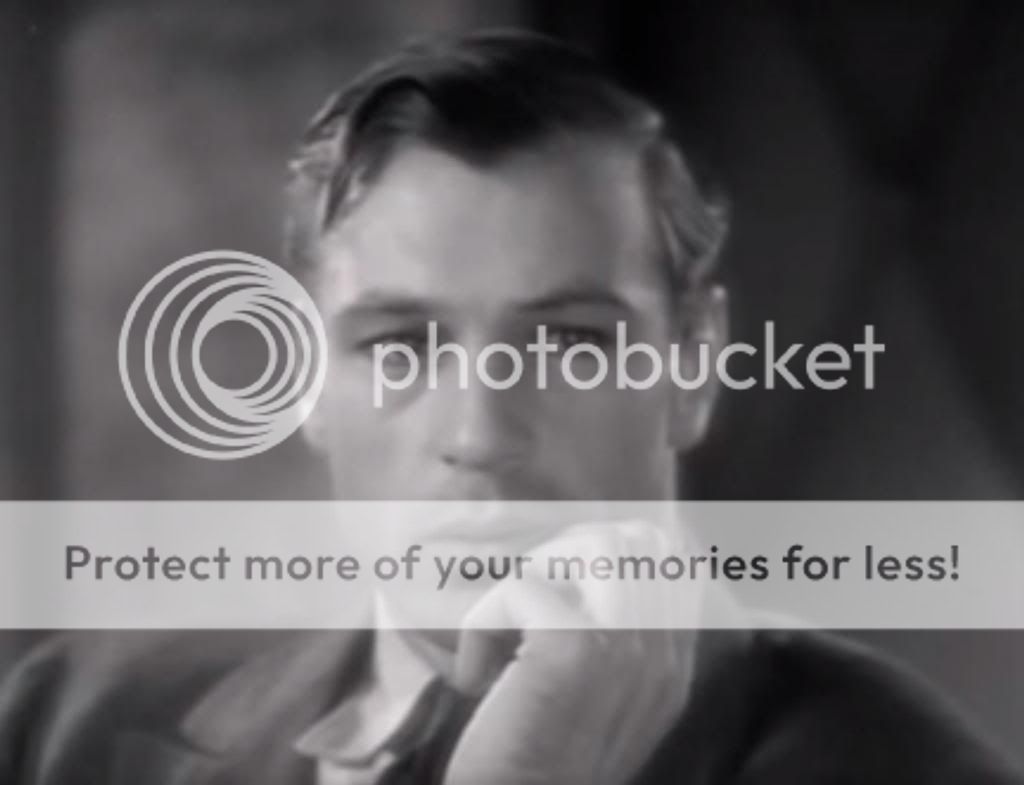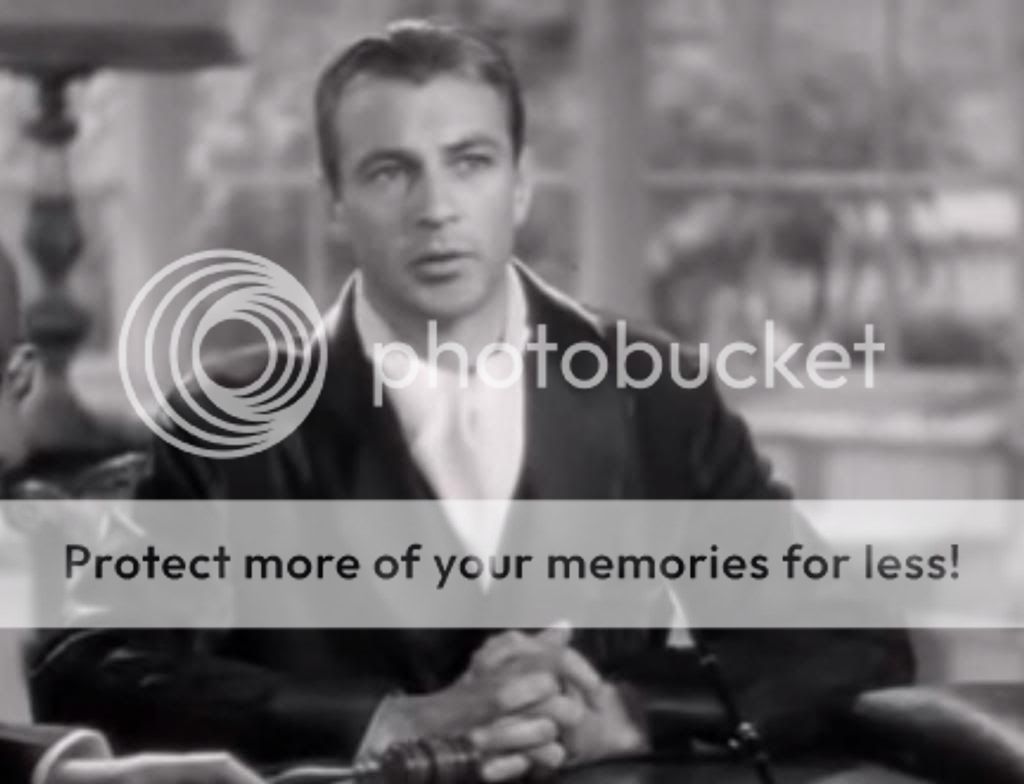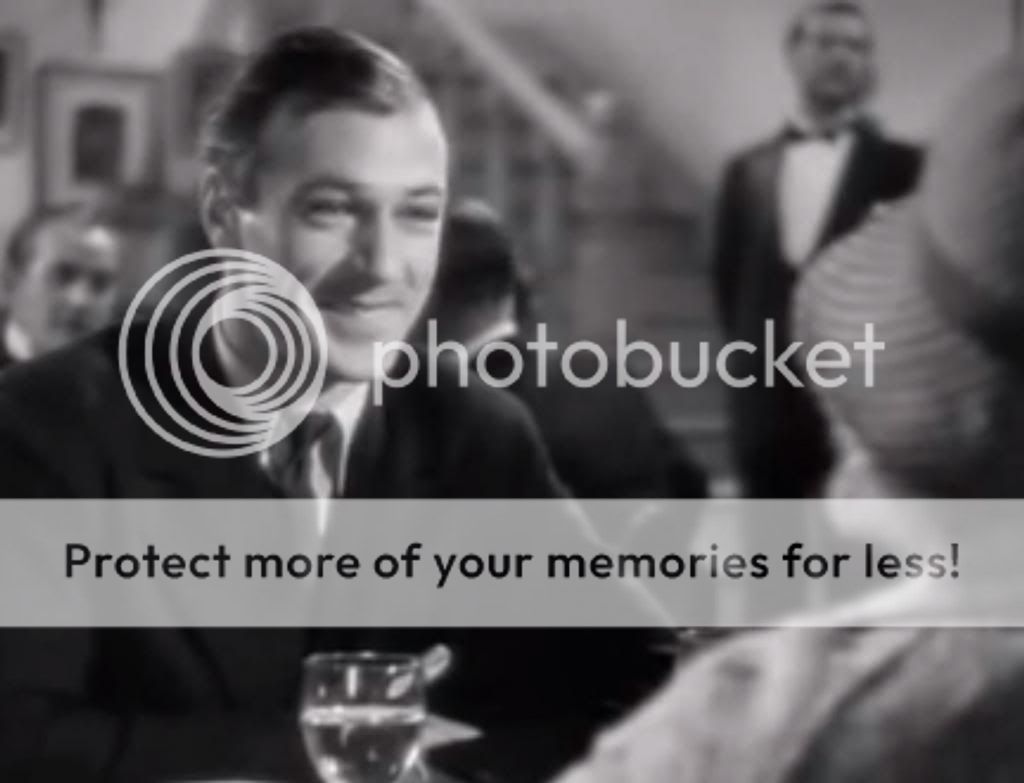as LONGFELLOW DEEDS

It is said that Gary Cooper was Frank Capra's "first, last and only choice" for the role of Mr. Deeds. I've been trying to figure out why that was, because my perception of Gary Cooper has always been that of a solemn and detached actor. So his casting as an eccentric and gentle man struck me as very strange, because surely there were naturally quirkier alternatives who'd have been more fitting for the role. But I can't fault Capra for knowing what he wanted, and so with that we have Cooper in Mr. Deeds Goes to Town, a somewhat interesting yet not very gratifying performance in a somewhat interesting yet not very gratifying film.

 An op-ed on Forbes points out that Cooper "embodied American goodness and strength, projecting it on the screen with understated brilliance." I would say that this more-or-less sums up how I feel about Coop's performance in Mr. Deeds Goes to Town. In a way the role is fitting for him--Longfellow Deeds is the perfect Depression-era character, and Deeds' wholesomeness as well his journey against cruel money-hungry folks requires an endearing resilience that I think Cooper pulls off rather naturally. I never disliked Deeds, and most of the time I found him cute in the same way I'd find a puppy cute. Cooper does a decent job at establishing a likable character, I'll give him that. But in the same Forbes article the writer talks about Coop's "it's-not-all-about-me demeanor", and that's where my opinion on the performance shifts a bit. I've never thought of Cooper as being a charming or charismatic actor. To me he's always been a brooding, detached, quiet guy whom I respect from a distance. Which is why I'm not sure he fits here, as Frank Capra's lead characters (at least the ones I've seen to this point) require a warmth and welcoming approachability that Cooper lacks. Perhaps Clark Gable or Jimmy Stewart would have been a better fit, actors who don't internalize so much, because throughout the film I was always expecting more from Coop. My issue here is that he is perhaps a little too understated playing a role that could benefit from more exuberance and liveliness. Much of his line deliveries are one-note, and even when Deeds gets excited there's always a whiff of restraint in the way Cooper conducts himself, as if it's unnatural for the man to showcase louder emotions. He's best when he plays hurt and disappointed, but given that the film is a comedy I can't say the man had much to offer in terms of comedic chops. In this case, he's very much "not-all-about-me" in a role that should have been "all-about-me".
An op-ed on Forbes points out that Cooper "embodied American goodness and strength, projecting it on the screen with understated brilliance." I would say that this more-or-less sums up how I feel about Coop's performance in Mr. Deeds Goes to Town. In a way the role is fitting for him--Longfellow Deeds is the perfect Depression-era character, and Deeds' wholesomeness as well his journey against cruel money-hungry folks requires an endearing resilience that I think Cooper pulls off rather naturally. I never disliked Deeds, and most of the time I found him cute in the same way I'd find a puppy cute. Cooper does a decent job at establishing a likable character, I'll give him that. But in the same Forbes article the writer talks about Coop's "it's-not-all-about-me demeanor", and that's where my opinion on the performance shifts a bit. I've never thought of Cooper as being a charming or charismatic actor. To me he's always been a brooding, detached, quiet guy whom I respect from a distance. Which is why I'm not sure he fits here, as Frank Capra's lead characters (at least the ones I've seen to this point) require a warmth and welcoming approachability that Cooper lacks. Perhaps Clark Gable or Jimmy Stewart would have been a better fit, actors who don't internalize so much, because throughout the film I was always expecting more from Coop. My issue here is that he is perhaps a little too understated playing a role that could benefit from more exuberance and liveliness. Much of his line deliveries are one-note, and even when Deeds gets excited there's always a whiff of restraint in the way Cooper conducts himself, as if it's unnatural for the man to showcase louder emotions. He's best when he plays hurt and disappointed, but given that the film is a comedy I can't say the man had much to offer in terms of comedic chops. In this case, he's very much "not-all-about-me" in a role that should have been "all-about-me".
I agree with you that Cooper is somewhat miscast here. His screen persona is that of the soft-spoken Everyman, with none of the quirks or eccentricities of Longfellow Deeds. It's a bit of a stretch for him in those early scenes although, when obliged to be a bit rough-and-tumble, he's totally in the moment. There are two things I love about this performance. First, his chemistry with Jean Arthur is wonderful. He is both innocently childlike and romantic with her in a way that is quite lovely. Second, the way Cooper uses his silent moments is superb. Both the scene in the courtroom and, especially, the scene where he sits across from a starving man who nearly shot him are expert lessons in how an actor can use silences to convey everything. This isn't 'silent-movie' indicating but the subtle underplaying of a talented actor who understands his character in these situations. I think the whole movie hinges on his transformation and Cooper nails that aspect of his character, whatever his initial short-comings might have been.
ReplyDelete